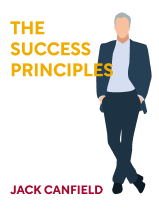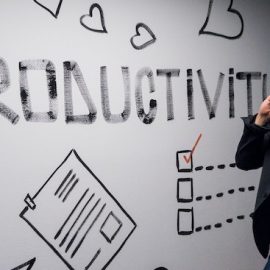

This article is an excerpt from the Shortform book guide to "The Success Principles" by Jack Canfield. Shortform has the world's best summaries and analyses of books you should be reading.
Like this article? Sign up for a free trial here .
What does it mean to act with class? What are the best ways to act with class in your life?
Acting with class means striving to improve in many areas of your life for yourself and those around you. Improving yourself attracts people into your life who can help you further.
Read more about what it means to be a class act, tips on how to act with class, and how doing so can help you succeed.
How to Act With Class
Acting with class can help you distinguish yourself from others and achieve success. For example, acting with class can help you attract business partners who hold themselves to high standards like you do. Your chances of success are greater when your values align.
Here are seven tips on how to act with class:
1. Accept responsibility for your actions and results. Taking responsibility for your actions and their results means taking ownership of your role and recognizing that you have the power to act differently to elicit different results if you don’t like the ones you’re getting.
2. Develop personal standards and follow them. People who act with class establish standards for how they want to live, apart from the standards society prescribes. For example, if it’s common in your industry to take 72 hours to respond to an email, make it your standard to respond in 48 hours.
3. Achieve your goals, and help others achieve theirs. Create goals, and push yourself to achieve them. To achieve your goals, select opportunities and structures that help you grow and gain confidence in your abilities. In forging this path for yourself, you pave the way for others to do the same. Once you’ve achieved your goals, create new ones, and work to support others in achieving their goals.
4. Find meaning in everyday experiences. Develop the ability to enrich yourself and those around you by seeking greater meaning in ordinary experiences. For example, getting the groceries isn’t just something to check off your to-do list for the day—after doing it, take a moment to appreciate your accomplishment in taking care of yourself.
5. Maintain grace, even under difficult circumstances. There are two main ways to do this:
- Stay calm. In the face of difficult circumstances, your calmness is a comforting anchor for others.
- Act with confidence. Showing confidence in your plan of action helps you and those around you stay the course. For example, by staying calm and expressing a confident vision, Winston Churchill successfully helped the Allies defeat Nazi Germany in World War II.
6. Express appreciation, and act with courtesy and generosity. You might fall into the habit of being bothered by small matters or taking out frustrations on others. Focusing on appreciating and treating others well trains your brain to be more compassionate and to see the world in a more positive light, making small difficulties feel easier to overcome.
7. Treat everyone as a unique individual. Though humans share many commonalities, each of us is a product of different genetics, life experiences, and circumstances. Treating everyone as unique broadens the definition of what it means to be human while supporting people on their particular life journey.

———End of Preview———
Like what you just read? Read the rest of the world's best book summary and analysis of Jack Canfield's "The Success Principles" at Shortform .
Here's what you'll find in our full The Success Principles summary :
- The 67 principles to help anyone achieve their goals and dreams
- Why achieving your goals requires you to invest your time and effort
- How to take responsibility for your own life






